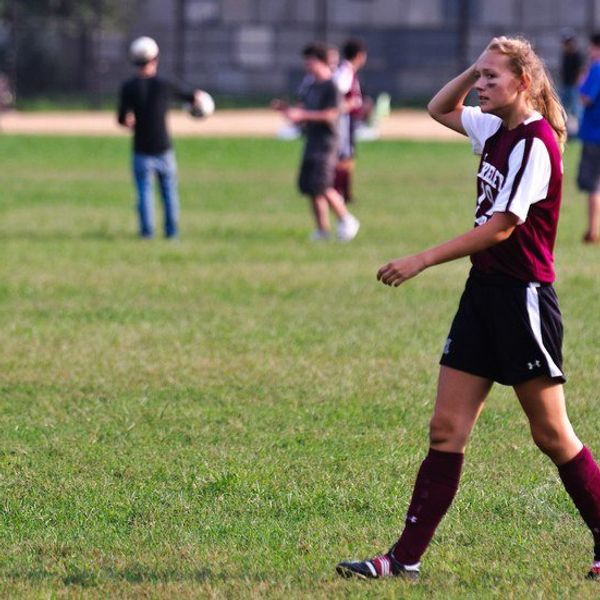For the majority of my K-12 years, I did things that I enjoyed, and I enjoyed them because I was good at them. Excelling academically meant that I pursued academic extracurricular activities as well. Science Olympiad, Math Olympiad, First LEGO League and National History Day became my bread and butter such that I was learning a ton in and outside of school. I was in my element, being challenged, working hard, seeing results and then repeating the process with another subject.
Before starting high school, I went to the activities fair and signed up for 27 activities, six of which were sports. (I wish this were an exaggeration. It’s not.) I eventually narrowed down the list, but I decided that I wanted a way to meet more people before the school year started. On a whim, I attended the first meeting for swim and dive — I had no interest in swimming, but I had always enjoyed the diving portion of swim lessons and was told that I could just be a diver if I wanted to. So, I joined the diving team! Important to note at this point: I have very little athletic ability. I am very prone to injuring myself in absurd ways (I've sliced my finger with a butter knife, gotten an intense paper cut from opening a box of Rice Krispie Treats — you get the picture), so diving seemed like a real health risk too. Still, I decided to give it a shot, and I absolutely loved it.
The feeling I got from diving was completely different from the feeling I got from any of my other extracurriculars. I definitely wasn’t the best on the team — in fact, I was likely the worst. Still, I loved it and stuck with it the next year. My sophomore year, the swim coach decided that divers without six dives by the end of the summer would be cut from the team. I had been away most of the summer at engineering camp (I know) and started the season late as a result. I had finished the previous season with a measly three dives, so this was a tall order for me. Somehow I got two more by the end of the summer, but absolutely could not do a reverse dive by the deadline and was subsequently cut from the team that I had loved so much.
I left feeling dejected: so much for enjoying something I didn’t excel at. I wouldn’t get to enjoy it anymore because I just wasn’t good enough — I was told that the coach would be wasting his time trying to help me learn, but I was welcome to return if I learned on my own.
The next night, I went to a diving clinic an hour away to see if they could help me learn that last dive. I wasn't ready to give up. At the clinic, I practiced the dive for three hours straight: first in belts on the trampoline, then with belts on the boards and then finally, on the boards without the safety net of the belts holding me up. As soon as I had walked in, the coach at the clinic told me “you can leave here knowing that dive — you just have to want it badly enough.”
I definitely wanted it, so when I left that night, I could successfully do both a reverse dive and a reverse somersault. I was exhilarated! I had worked harder than ever before on something that was new and difficult to me, and it paid off. I was back on the team the next day (still the worst), but I went on to earn my varsity letter and compete in the division meet that season, which seemed like a huge feat to me. By the end of my senior year, I had remained a varsity diver and competed in the division and conference meets. Though I remained the worst on the team, I improved remarkably, had a brilliant time and loved the experience wholeheartedly.
Working hard at something that I wasn’t immediately good at was an incredibly valuable learning experience. I realized that I didn’t have to excel at something in order to love it, but making an effort would still help me improve. Now that it’s harder to excel (at least by my old definitions) in every class, this attitude has helped me continue to learn and work hard even when it seems like I’m not succeeding.
Do things that aren’t easy for you — you’ll surprise yourself with the results!





















